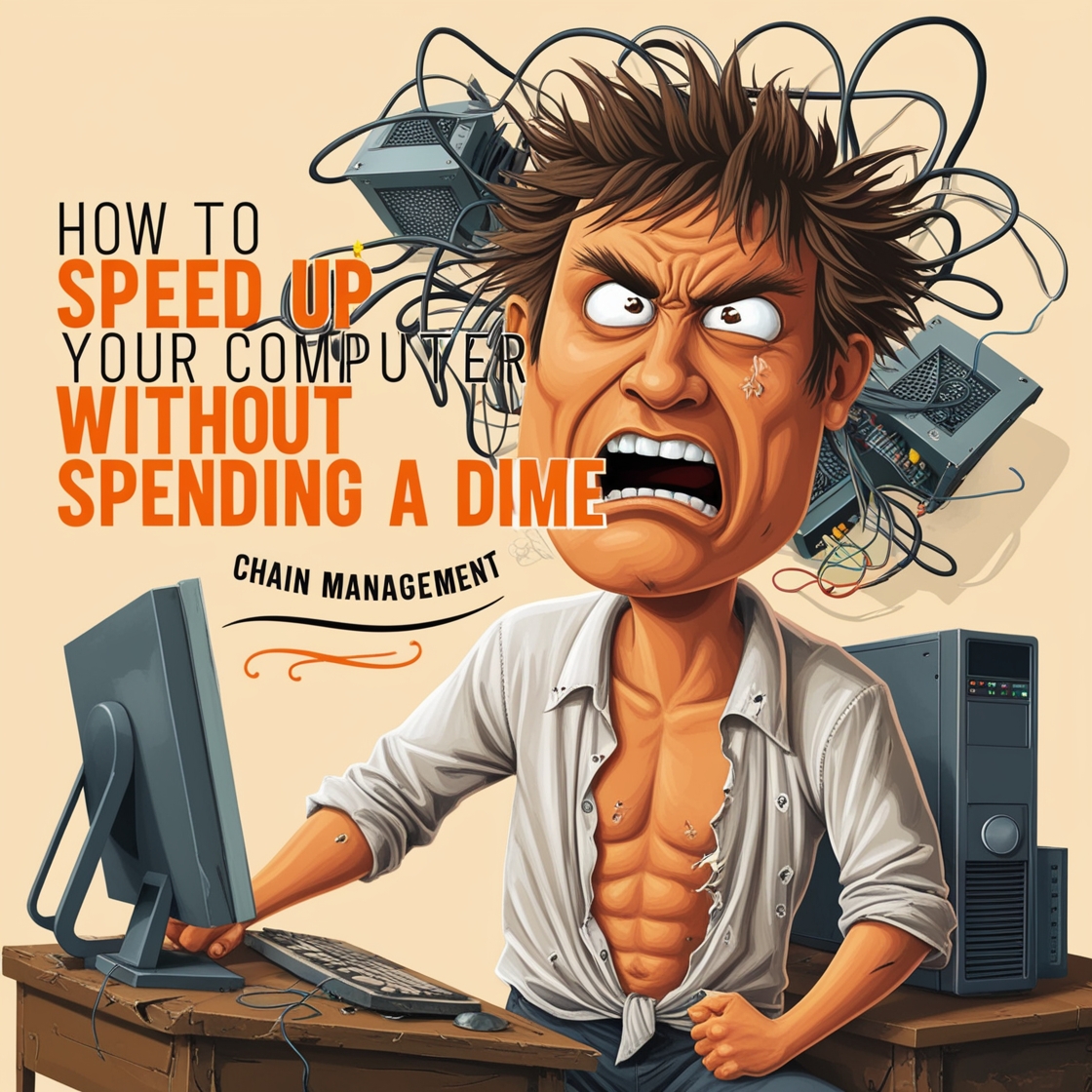Introduction
Let’s face it—few things are as frustrating as a sluggish computer. Whether you’re working, gaming, or just browsing the web, a slow system can kill productivity and test your patience. But here’s the good news: you don’t need to spend a penny to speed up your machine. A few clever tweaks can breathe new life into your system without draining your wallet.
Why Do Computers Slow Down Over Time?
Ever wondered why your once-speedy computer now feels like it’s stuck in molasses? It’s not just bad luck—it’s a mix of digital clutter and overworked hardware.
- Accumulation of Junk Files: Temporary files, cache, and logs pile up and hog precious storage.
- Overloaded Startup Programs: Too many programs running in the background slow down your system’s boot time.
- Hardware Wear vs. Software Issues: While older hardware can affect performance, many slowdowns stem from software inefficiencies.
Preliminary Steps Before Starting
Before diving into the fixes, a bit of prep work can save headaches later.
- Back Up Your Data: Always ensure your files are safe in case something goes wrong.
- Check Your Antivirus Software: Run a quick scan to ensure your system is malware-free before optimizing.
Optimize Your Computer’s Startup
Does your computer take forever to boot? The culprit could be unnecessary startup programs.
- Identify Unnecessary Programs: Use the Task Manager (Windows) or Activity Monitor (Mac) to see what’s hogging resources.
- Disable Non-Essential Items: Turn off startup options for programs you don’t need running automatically.
Clean Up Junk Files
A clean system is a fast system. Start by clearing out the digital cobwebs.
- Use Built-In Tools: On Windows, Disk Cleanup removes temp files and system junk. Mac users can leverage Storage Management.
- Clear Browser Cache: Over time, cached files can slow down your browser’s performance.
Uninstall Unused Programs
If you haven’t used that photo editor or obscure game in months, it’s time to say goodbye.
- Identify Resource Hogs: Open your apps list and sort by size or usage frequency.
- Remove Safely: Use built-in uninstallers to avoid leaving residual files behind.
Update Your Software
Outdated software isn’t just a security risk—it can also slow you down.
- Enable Automatic Updates: Most operating systems and apps allow you to automate this process.
- Manually Check for Updates: Especially for drivers and critical software.
Defragment Your Hard Drive (HDD Users)
If you’re using an HDD, defragmentation can significantly improve performance.
- What is Defragmentation? It reorganizes fragmented files to speed up access times.
- How to Defragment: Use tools like Windows Defragment and Optimize Drives.
Optimize Your Storage
Low storage space can cause serious slowdowns.
- Organize Files: Keep your desktop clutter-free and organize documents into folders.
- External Storage: Move rarely-used files to an external drive or cloud storage.
Adjust Visual Effects for Performance
Fancy animations are great, but they can slow down older machines.
- Disable Animations: On Windows, access “Performance Options” and select “Adjust for best performance.”
- Mac Users: Reduce transparency and animations in the Accessibility settings.
Scan for Malware and Viruses
Malware can hog resources and wreak havoc on your computer.
- Run Regular Scans: Free antivirus software like Avast or Windows Defender works wonders.
- Remove Threats Immediately: Follow recommended actions after a scan.
Tweak Browser Settings
Your web browser might be a hidden culprit in slowing down your machine.
- Manage Extensions: Disable or remove unnecessary browser add-ons.
- Choose Lightweight Browsers: Opt for browsers like Brave or Opera that prioritize speed.
Use Built-in Troubleshooting Tools
Your operating system often comes with tools to diagnose and fix performance issues.
- Performance Troubleshooter: Find and resolve common problems.
- Other Tools: Check hard disk health or run memory diagnostics.
Consider Alternative Operating Systems
If your computer is old and struggling, consider switching to a lightweight OS.
- Linux Distributions: Options like Ubuntu or Linux Mint are fast and free.
- Ease of Switching: Many come with user-friendly installation guides.
Conclusion
Speeding up your computer doesn’t have to cost a dime. With these no-cost solutions, you can get your system running like new again. The key is staying proactive—regular maintenance goes a long way in keeping your machine in top shape.
FAQs
1. Why does my computer slow down after updates?
Sometimes updates introduce new features that demand more resources. Clearing junk files and optimizing settings post-update can help.
2. Can these tips work for Mac users too?
Yes, most tips are universal. Mac users can benefit from cleaning junk files, updating software, and managing startup items.
3. How often should I defragment my hard drive?
For HDD users, once a month is usually enough. SSD users don’t need to defragment.
4. What’s the best free antivirus software?
Options like Avast, AVG, and Windows Defender are reliable and free.
5. Are these methods safe for all computers?
Yes, but always back up your data before making significant changes to your system.
